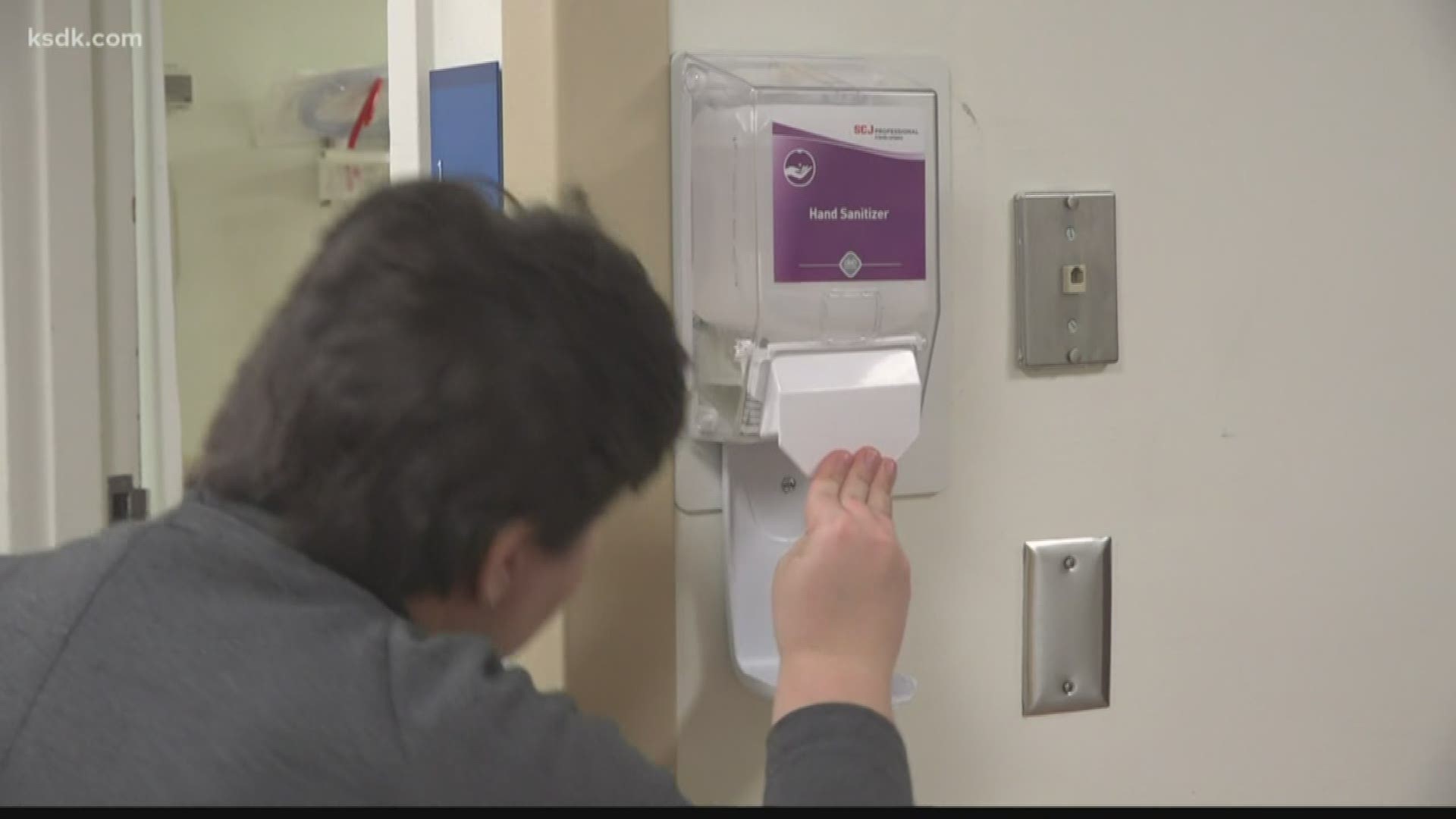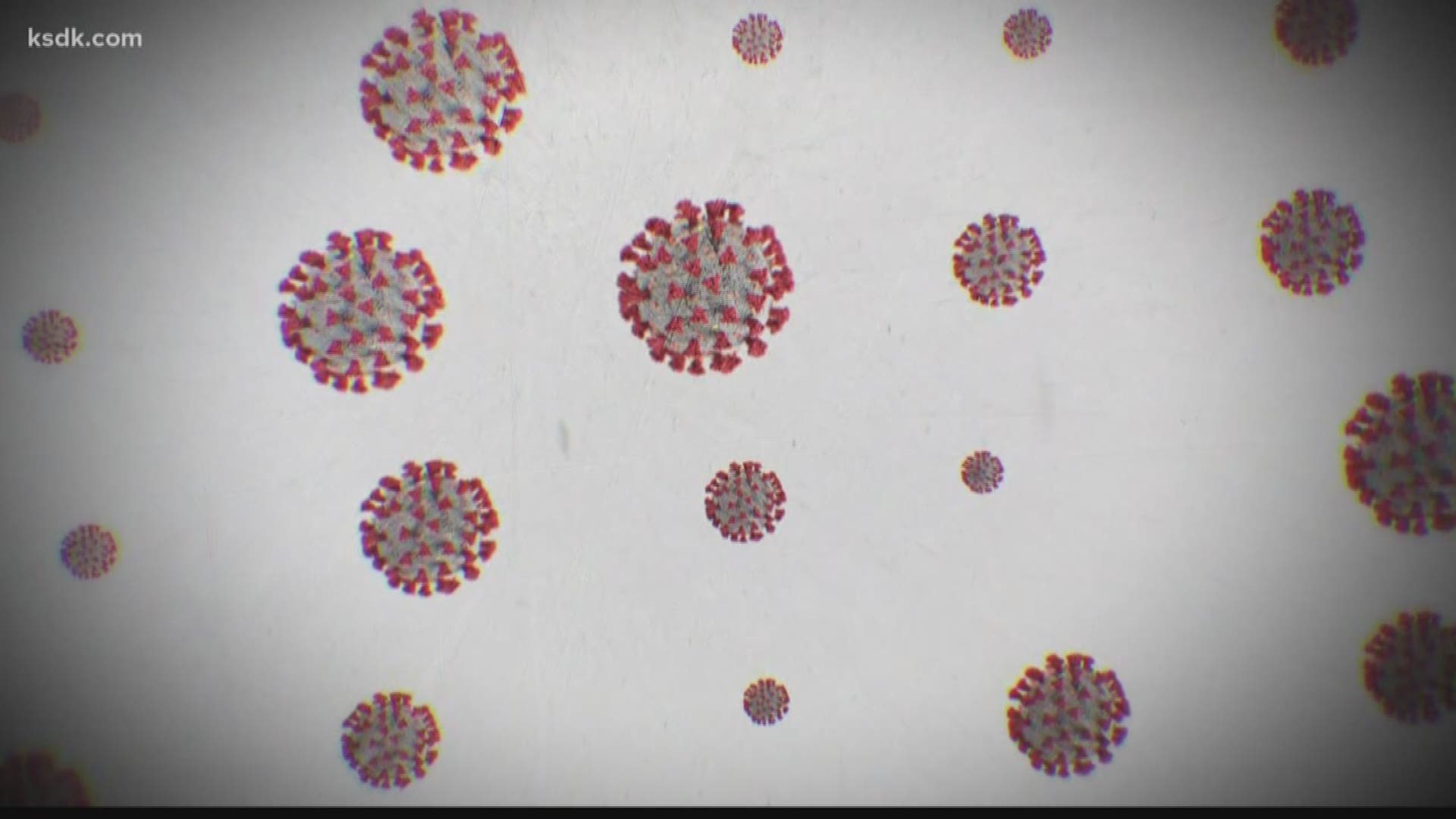ST. LOUIS — As health departments in our area test and monitor patients for COVID-19, they are warning people not to just head for the nearest hospital or doctor's office if you think you might have coronavirus.
Medical experts say there are a lot of unknowns about the virus, named “SARS-CoV-2”, and the disease it causes, “coronavirus disease 2019” or COVID-19. One thing the experts do know, however, is that it can be spread pretty easily.
Because of that, hospitals and urgent-care facilities are on high alert trying to keep the virus from spreading to the already at-risk patients you would typically find there. But there are some things you can do to help make their jobs easier.
If you have general questions about coronavirus, you can call 211.
If you think you might have coronavirus, the first thing you should do is contact your local health department. Some of that information is as follows:
- City of St. Louis Department of Health: (314) 657-1499
- St. Louis County COVID-19 Hotline: 314-615-2660
- St. Charles County Health Department
- Jefferson County Health Department
- Missouri coronavirus hotline: 877-435-8411
- Illinois coronavirus hotline: 1-800-889-3931
When talking to those hotline workers, they will work to determine if your concerns are justified and if you should get tested. If they think you might have coronavirus, they can work with you to give the hospital a proper warning before going to the hospital.
Hospitals like Mercy — where the state's only confirmed coronavirus patient was taken for testing — have protocols that keep potential coronavirus patients away from the rest of the patients.
On Saturday night, when the first case was confirmed, Mercy Emergency Room Dr. Alok Sengupta said the patient was brought directly to a negative pressure room. She was treated by healthcare professionals who wore protective gear the entire time they were treating her.
“Mercy has been preparing for COVID-19 for several months now,” Dr. Sengupta said. “We have had planning groups and task forces planning all aspects of this virus.”
After the test is administered, doctors will decide if the patient meets the hospital's admission criteria or if they can be released. If the patient stays at the hospital, they will be kept away from other patients and be treated by staff in protective gear.
If the person is released from the hospital, the health department will likely ask the person to self-quarantine.
The CDC provides the following advice for self-quarantine:
- Stay away from others: As much as possible, you should stay in a specific room and away from other people in your home. Also, you should use a separate bathroom, if available.
- Limit contact with pets & animals: You should restrict contact with pets and other animals while you are sick with COVID-19, just like you would around other people. Although there have not been reports of pets or other animals becoming sick with COVID-19, it is still recommended that people sick with COVID-19 limit contact with animals until more information is known about the virus.
- When possible, have another member of your household care for your animals while you are sick. If you are sick with COVID-19, avoid contact with your pet, including petting, snuggling, being kissed or licked and sharing food. If you must care for your pet or be around animals while you are sick, wash your hands before and after you interact with pets and wear a face mask. See COVID-19 and Animals for more information.
What comes next will depend on the test results.
As of Wednesday evening, there has been one confirmed case of coronavirus in Missouri. Illinois has 25 confirmed cases of coronavirus, most of which are in the Chicago area and suburbs.


